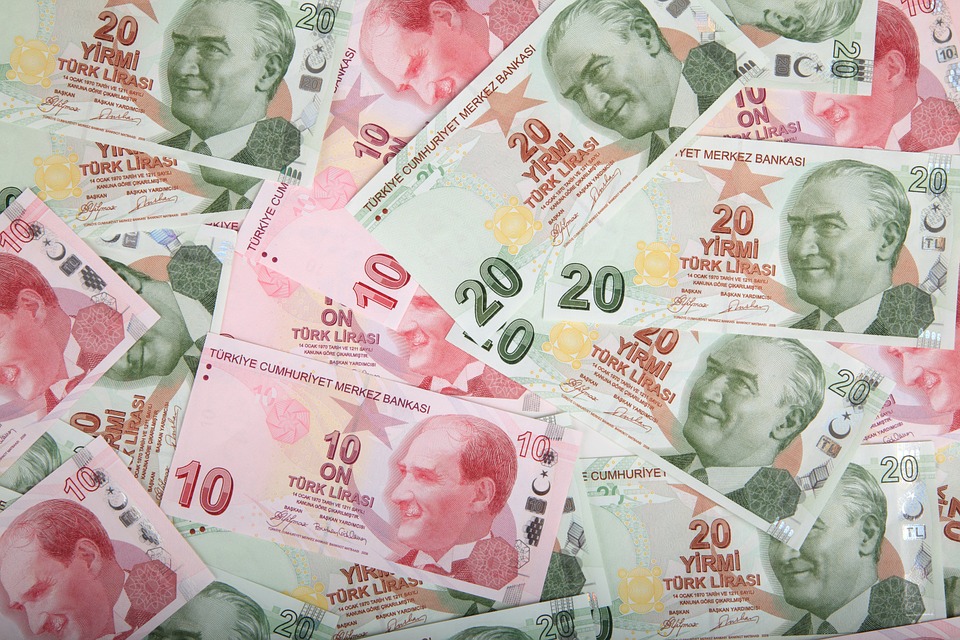Monex Europe: Turkish elections outcome decisive for lira assets

With a second election round in Turkey, investors are left in another period of uncertainty, which will likely result in persistent but slow TRY depreciation.
All eyes are on who Sinan Ogan, the third most popular presidential candidate, endorses with his 5.28% of the vote. This could tip the balance back into Kılıçdaroğlu’s favour, but the market base case.
The policy platforms for both candidates are incredibly divergent, with Erdoğan prioritising growth and heterodox economic policies to bring down inflation, while the opposition leader Kilicdaroglu is promoting a much faster return to orthodox monetary policy.
For investors, the outcome of the presidential election will be key, largely because of the vast chasm between their views on monetary policy and the extent to which they view the need to correct macroeconomic imbalances. Despite the two candidates’ diametrically opposed election platforms, we expect that different election scenarios won’t significantly alter the outlook for the lira until the medium-term.
In the short-term, both a continuation in Erdoğan’s heterodox policy framework and a return to more orthodox stance under Kılıçdaroğlu will likely lead to further TRY depreciation as implied by the pre-election steepening of the USDTRY forward curve and the rally in front-end risk reversals.
A Kılıçdaroğlu still spells short-term TRY depreciation
If Kılıçdaroğlu takes office, we expect a swift return to orthodox macroeconomic policies. While this will improve the attractiveness of Turkish assets for foreign investors, the adjustment process is unlikely to be smooth in the short-term.
With the CBRT’s FX reserves depleted and USDTRY trading substantially below where its economic fundamentals place it, any sudden withdrawal of the macroprudential policy mechanisms that have acted as a brake on TRY depreciation in recent months will need to be offset by a sudden inflow of foreign investment or a significant uptick in the pace of local de-dollarisation.
While a significant increase in the CBRT’s policy rate could facilitate this as it improves the lira’s carry profile, we don’t think this will be enough to completely offset hesitation by local corporates and foreign investors. The extent to which the lira depreciates in the short-term is difficult to gauge in advance as the outcome depends on the macroeconomic program announced and whether this can be completely enacted given the minority within parliament.
But it provides a much more constructive medium-term outlook
Over the medium-term, Kılıçdaroğlu’s policy agenda provides a much more constructive outlook for the Turkish economy, with inflation likely to trend lower and external imbalances improve considerably more than under an Erdoğan administration.
Additionally, institutional credibility is likely to return to Turkey and access to Turkish assets is likely to improve. These are key pillars for investor sentiment to rebuild, and we expect after a period of sharp depreciation following the removal of the current policy framework, this will provide a solid entry point for capital inflows to take place.
However, this constructive medium-term view has been tempered somewhat by the loss of the Nation Alliance within the parliamentary election, which should restrict Kılıçdaroğlu’s ability to rewrite the constitution to make the CBRT legally independent.
Erdoğan victory will see unorthodox policymaking continue
In our view, while the magnitude of short-term TRY depreciation is likely to be similar under an Erdogan victory to that seen under the return to a more orthodox policy framework, it is likely to take place at a slower rate due to the retention of lira-isation policies.
Over the medium-term (i.e. beyond 3 months), we expect depreciation pressures to persist as only a modest return to orthodox macroeconomic policies (slower pace of credit growth, some fiscal retrenchment, and a partial rebuilding of FX reserves) won’t inspire foreign capital inflows nor will it improve the current macroeconomic imbalances.
Furthermore, given Erdoğan’s staunch support for lower interest rates, we don’t expect the CBRT to tighten monetary policy should he retain office. This should keep inflation high, maintain the current account deficit and sustain TRY depreciationary pressures.
The big risk in this outlook is the pressure placed on the government’s balance sheet as it continues to pay the cost of its FX deposit protection schemes alongside other measures. A continued accumulation in pressure could raise financing risks.
The most pessimistic lira scenario
However, there is also an outside risk that under a Kılıçdaroğlu victory, a contested election takes place. In a similar fashion to Donald Trump and Jair Bolsonaro, it is conceivable that Erdoğan could deny the official outcome, especially after leading in the first round.
Similarly to the second round vote situation, we have no precedent to gauge how this could play out in Turkey’s judicial system, nor how this could impact either candidate’s ability to govern. What is predictable is that both local and foreign investors will find this outcome unpalatable, and as such we expect the most lira downside under this scenario.








